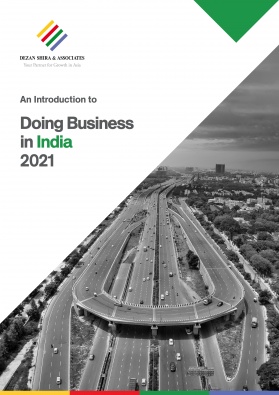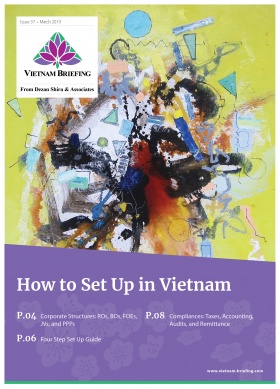Business Etiquette in Vietnam – Customs and Tips
Vietnam has one of the oldest cultures in Southeast Asia. While national identity can be complex given Vietnam’s history, locals are proud of their language and its complexities, as well as the distinctiveness of their society and culture. The expression dat viet (Vietnamese land), for example, encapsulates the notion that Vietnamese society have an organic relationship to their environment.
Since the introduction of Doi Moi – or ‘renovation’ policy – in the 1980s, which began the transition from the country’s socialist economy to a market economy, Vietnam has experienced many significant changes, including a rise in the standard of living. These factors have in turn inspired a flurry of foreign businesses looking to start operations or expand in the country.
But for those planning to do business in Vietnam for the first time, it is important to learn about the country’s vibrant culture and traditions. Those that do will find it easier to work in the country.
Greetings in Vietnam
While English is gaining in popularity, Vietnamese remains the dominant language: it is spoken by 86 percent of the population. Vietnamese appreciate it if a foreigner tries to learn simple phrases in their language such as xin chao (pronounced as ‘seen chow’), meaning “hello” in Vietnamese.
A handshake and a slight bow of the head is the general custom for saying hello and goodbye. Meanwhile, Vietnamese names are written and introduced in the following order: last name, middle name, first name.
Business etiquette 101
When possible, business meetings should be done in the presence of someone who can translate. Be prepared to attend several meetings as successful deals are rarely completed in a few encounters. Conversations held in person are preferred over online communication and emails.
Cold calling is not recommended. It is recommended to be introduced to a potential business contact by a common acquaintance or third-party reference. Business meetings should be scheduled in advance and should avoid major public holidays, such as Tet, which is the Vietnamese New Year celebration.
For first-time meetings, it’s best to meet at your potential partner’s office. This avoids the possibility of a last-minute cancellation because of any travel difficulties on behalf of your business partner.
When giving or receiving business cards, do so with both hands. Time should be taken to read the name on the card – hastily stuffing a business card or barely giving it a glance is deemed offensive. When possible, seek to create a business card that has both English and Vietnamese translations.
If offered tea at the reception, accept it, as this is a sign of hospitality. In the North, hot tea is typically served, while in the South, meetings take place with ice tea or soft drinks.
It’s best to have an agenda before the meeting so the business partners can acquaint themselves with what will be discussed. It is also helpful to have all documents translated in Vietnamese.
Silence is common in meetings and means that your partners are thinking about your interests. Interrupting this time of reflection can be considered rude. Further, silence may be used when someone disagrees, and so not cause a loss of face for attendees.
Seniority and hierarchy are important in Vietnam. For example, showing the eldest person respect by giving them your business card first is appropriate.
Saying “yes” may merely indicate understanding, rather than actual agreement. It’s best to follow up and confirm with your business partner to understand if you have agreed on a deal.
It is typically the guest’s responsibility to signal the end of the meeting.
The first few meetings will involve getting to know each other, as compared to the West, where first meetings tend to remain on a business level. Social connections are important, and Vietnamese may make most of their business decisions based on how they see you as a person outside of the business.
Many Vietnamese will ask questions that may seem personal to a foreigner. Discussing one’s family and personal life is normal and is seen as a sign of friendliness and interest.
It’s common to give gifts at the end of a business meeting. These can be small and does not need to be expensive. A possible item could be a pen or stationary with a company logo or an item typical from your country of origin.
Business attire
Business attire will depend on the location of the meeting. For example, Hanoi is known for its white-collar environment, while Ho Chi Minh City is more business casual.
Typically, business partners should dress modestly, avoiding bright colors. Suits are appropriate for men, while skirts and blouses are fine for women.
The Vietnamese working week is typically from Monday to Friday with office hours from 8:00 a.m. to 5:00 p.m.
The concept of ‘face’
As with many other Asian countries, the concept of face is extremely important in Vietnam. While in the West being frank and direct is considered a good trait, direct disagreement or raising of questions in public can be seen as a person to “lose face” in Vietnam. Face is a concept that can be roughly described as reflecting a person’s reputation, dignity, and prestige.
Foreigners should be aware of unintentionally causing a loss of face due to their words or actions. The important takeaway is to treat your business partners with respect. If you have suggestions or challenges, it’s best to bring them up carefully in private.
Eating and drinking
If invited as a guest in a Vietnamese home, bring fruit, sweets, flowers, or incense. Avoid giving handkerchiefs, anything black, yellow flowers, or chrysanthemums. The best dishes will likely be offered to you; be sure to taste and share these dishes.
Wait for the host to give the signal to start the meal before sampling any of the food. It is considered good manners to finish all the food in your plate.
At a restaurant, wait to be seated. In most cases, the oldest in the group will be seated first. Use both hands to pass items and never pass anything over someone’s head. When motioning for a person to come over, do not use your finger, and use your hand to beckon instead.
If paying, tipping of five to 10 percent is appreciated, though not customary.
Safety
Vietnam is a relatively safe country for travel. However, business travelers need to be aware of petty and opportunistic theft, particularly in major cities such as Hanoi and Ho Chi Minh City.
Valuables should be stored in hotel safes, while mobile phones and wallets should be kept out of sight to minimize the risk of pickpocketing, particularly in tourist areas. While the police are not always helpful, they will generally treat foreigners with respect.
Taxi scams are common, including the use of faulty meters, or taking a longer route to a destination. Business travelers should book transport through their hotel or use registered taxis such as Mai Linh (green) or Vinasun (white with green and red stripes). These taxi companies also have card machines for direct payment.
About Us
Vietnam Briefing is produced by Dezan Shira & Associates. The firm assists foreign investors throughout Asia from offices across the world, including in Hanoi, Ho Chi Minh City, and Da Nang. Readers may write to vietnam@dezshira.com for more support on doing business in Vietnam.
We also maintain offices or have alliance partners assisting foreign investors in Indonesia, India, Singapore, The Philippines, Malaysia, Thailand, Italy, Germany, and the United States, in addition to practices in Bangladesh and Russia.
- Previous Article Q&A: All Eyes on Vietnam – Why and How to Enter the Market
- Next Article Relocating Your Production to Vietnam – Latest Issue of Vietnam Briefing Magazine































